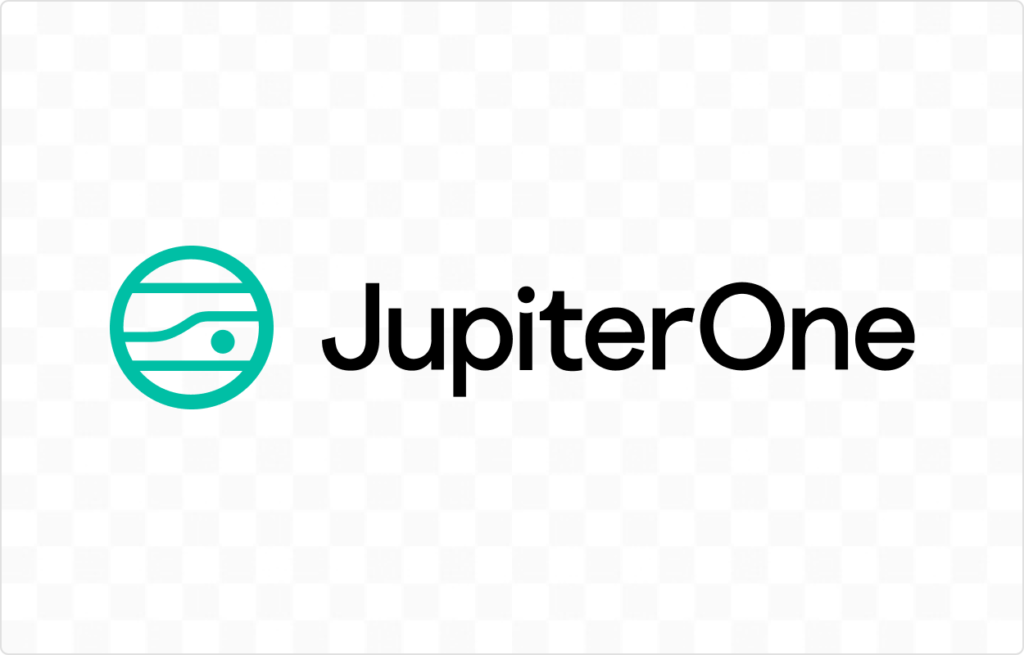In today’s rapidly evolving digital landscape, organizations face an ever-growing challenge in managing and securing their digital assets. As the dependence on cloud infrastructure, applications, and data continues to surge, the need for robust cybersecurity solutions becomes paramount. Enter JupiterOne, a groundbreaking cybersecurity company that is reshaping the way organizations protect and manage their digital environments.
JupiterOne is a cyber asset attack surface management (CAASM) platform company that helps organizations discover, map, analyze, and secure their entire cyber asset universe. The company’s platform uses a graph data model to visualize the relationships between different assets, which helps security teams identify and prioritize risks. JupiterOne also offers a variety of features to automate security workflows, such as vulnerability scanning, compliance reporting, and incident response.
JupiterOne was founded in 2020 by Erkang Zheng, who previously held security engineering roles at IBM and Fidelity Investments. The company is headquartered in Morrisville, North Carolina, and has raised over $119 million in funding. In 2022, JupiterOne was named to CNBC’s inaugural Top Startups for the Enterprise list.
JupiterOne’s platform is used by a variety of organizations, including Fortune 500 companies, government agencies, and financial institutions. The company’s customers have cited JupiterOne’s ability to help them improve their security posture, reduce risk, and save time and money.
Here are some of the key features of JupiterOne’s platform:
- Cyber asset discovery and mapping: JupiterOne can automatically discover and map all of an organization’s cyber assets, including cloud resources, on-premises devices, and SaaS applications. This information is then visualized in a graph data model, which makes it easy for security teams to see the relationships between different assets and identify potential risks.
- Risk prioritization: JupiterOne uses a variety of factors to prioritize risks, such as the criticality of an asset, the severity of a vulnerability, and the likelihood of a threat being exploited. This information helps security teams focus their resources on the most important risks.
- Security automation: JupiterOne can automate a variety of security workflows, such as vulnerability scanning, compliance reporting, and incident response. This frees up security teams to focus on more strategic tasks.
- Cloud-native architecture: JupiterOne is built on a cloud-native architecture, which makes it easy to deploy and scale. The platform is also highly secure, with features such as role-based access control (RBAC) and data encryption.
JupiterOne is a leading CAASM platform that can help organizations improve their security posture. The company’s platform is easy to use, scalable, and secure. JupiterOne is a good choice for organizations of all sizes that are looking to improve their security visibility and reduce risk.
Founding History of JupiterOne
JupiterOne was founded in 2020 by Erkang Zheng, who previously held security engineering roles at IBM and Fidelity Investments. Zheng founded JupiterOne after seeing the need for a more comprehensive and unified way to manage cyber assets. He believed that security teams needed a single platform that could help them discover, map, analyze, and secure all of their assets, regardless of where they were located.

Zheng began developing JupiterOne in 2019. He built the company’s core technology on a graph data model, which allows JupiterOne to visualize the relationships between different assets. This makes it easy for security teams to see how assets are connected and identify potential risks.
JupiterOne officially launched in 2020. The company quickly gained traction, and by the end of its first year, it had raised over $20 million in funding. In 2021, JupiterOne raised an additional $99 million in funding, bringing its total funding to over $119 million.
JupiterOne is now one of the leading cyber asset attack surface management (CAASM) platforms on the market. The company’s platform is used by a variety of organizations, including Fortune 500 companies, government agencies, and financial institutions. JupiterOne has been named to several lists of top startups, including CNBC’s inaugural Top Startups for the Enterprise list.
Zheng has said that JupiterOne’s mission is to “make security simple.” The company’s goal is to provide security teams with a platform that is easy to use, scalable, and secure. JupiterOne believes that by making security simple, it can help organizations improve their security posture and reduce risk.
Here are some of the key milestones in JupiterOne’s founding history:
- 2019: Erkang Zheng begins developing JupiterOne.
- 2020: JupiterOne officially launches.
- 2020: JupiterOne raises $20 million in funding.
- 2021: JupiterOne raises $99 million in funding.
- 2022: JupiterOne is named to CNBC’s inaugural Top Startups for the Enterprise list.
JupiterOne is a rapidly growing company with a bright future. The company’s platform is well-positioned to help organizations improve their security posture and reduce risk. With Erkang Zheng’s vision and leadership, JupiterOne is well-positioned to become a major player in the CAASM market.
Business Model of JupiterOne
In the realm of cybersecurity, innovation is the key to staying ahead of ever-evolving threats. JupiterOne has not only revolutionized the way organizations protect and manage their digital assets but has also disrupted the industry with its innovative business model. In this article, we delve into the intricate details of JupiterOne’s business model, highlighting its unique value propositions, revenue streams, and the strategic approach that sets it apart from traditional cybersecurity solutions.
Comprehensive Cybersecurity Platform:
At the heart of JupiterOne’s business model is its cloud-based platform that offers a suite of cybersecurity capabilities. The platform provides organizations with a holistic approach to asset discovery, vulnerability management, and compliance monitoring. By consolidating these critical functions into a single solution, JupiterOne delivers a streamlined experience that enhances efficiency and effectiveness.
Subscription-based Model:
JupiterOne operates on a subscription-based model, offering different tiers or plans tailored to the specific needs of organizations. This approach allows customers to select the level of features, support, and scalability that aligns with their requirements. The subscription model provides predictable and recurring revenue for JupiterOne while giving customers the flexibility to scale their cybersecurity efforts as their needs evolve.
Value-based Pricing:
JupiterOne employs a value-based pricing strategy, where the cost of its services is directly tied to the value they provide to customers. This approach ensures that organizations pay for the specific features and functionalities they utilize, enabling them to optimize their investment. By aligning pricing with value, JupiterOne creates a win-win scenario, where customers receive tailored solutions while the company sustains growth.
Strategic Partnerships:
JupiterOne has formed strategic partnerships with major cloud service providers, such as Amazon Web Services (AWS), Microsoft Azure, and Google Cloud Platform (GCP). These partnerships allow JupiterOne to leverage the existing infrastructure and services of these platforms, further enhancing the value it delivers to customers. By integrating seamlessly with these cloud providers, JupiterOne simplifies asset discovery and management, making it a compelling choice for organizations operating in these environments.
Expansion into New Verticals:
JupiterOne is continuously expanding its presence across various industries and verticals. By understanding the specific cybersecurity requirements and compliance standards of different sectors, JupiterOne tailors its platform to cater to these needs. This expansion strategy allows JupiterOne to tap into new markets, diversify its customer base, and stay at the forefront of emerging cybersecurity trends.
JupiterOne’s innovative business model has propelled the company to the forefront of the cybersecurity landscape. By offering a comprehensive platform, leveraging strategic partnerships, and focusing on customer success, JupiterOne has redefined how organizations approach cybersecurity management. With its subscription-based model, value-based pricing, and expansion into new verticals, JupiterOne continues to disrupt the industry, delivering cutting-edge solutions that empower organizations to safeguard their digital assets in an ever-changing threat landscape.
Revenue Streams of JupiterOne – How JupiterOne makes money?
JupiterOne has gained recognition for its innovative solutions and comprehensive platform. In addition to its technological prowess, JupiterOne has established multiple revenue streams that contribute to its sustained growth and success. This part explores the diverse revenue streams of JupiterOne, highlighting their key components and the value they bring to the organization.
Subscription fees: JupiterOne’s primary source of revenue is subscription fees. The company offers a variety of subscription plans to accommodate different organizations’ needs. The pricing plans are based on the number of assets that an organization has, the number of users, and the level of support that an organization requires.
Professional services: JupiterOne also offers a variety of professional services, such as implementation, training, and consulting. These services are typically billed on an hourly or project basis.
Partnerships: JupiterOne also generates revenue through partnerships with other security vendors. These partnerships can take a variety of forms, such as joint marketing, joint sales, or reselling of each other’s products and services.
JupiterOne’s revenue has been growing rapidly in recent years. In 2021, the company’s revenue grew by over 200%. This growth is being driven by the increasing demand for CAASM solutions. As organizations become more aware of the risks posed by cyber attacks, they are looking for solutions that can help them improve their security posture. JupiterOne’s platform is well-positioned to meet this demand.
The company’s revenue streams are diversified, which helps to reduce its risk. Subscription fees are the company’s primary source of revenue, but professional services and partnerships are also growing contributors. This diversification helps to ensure that JupiterOne is not overly reliant on any one source of revenue.
Overall, JupiterOne’s revenue streams are strong and diversified. The company is well-positioned to continue to grow its revenue in the years to come.
Also Read: FourKites – History, Founders, Business & Revenue Model
To read more content like this, subscribe to our newsletter
Go to the full page to view and submit the form.

